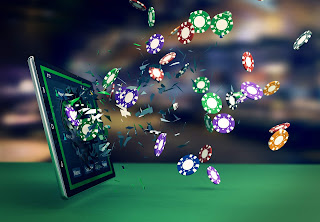Advice on how to win at poker
Gambling while intoxicated is a bad idea.
You'll often see players at a poker table with foggy eyes as their chips disappear one by one. Of course, the goal isn't to become a great pro when you're playing at home with friends for small stakes. The casino, on the other hand, necessitates that you limit your alcohol intake. It's easy to believe that you're not playing as hard after having a few drinks, but in reality, even when "not drunk," you're less focused and react less sharply.
Every hand is a risk. Increase the frequency with which you pass.
The most common error made by new players is to play an excessive number of hands. But playing more doesn't mean winning more, rather the opposite, losing more. In the beginning, focus on playing only your strongest hands.
Avoid playing if you're agitated, upset, or otherwise depressed.
If you've had a bad day, don't play poker in an attempt to lift your spirits. Playing on feelings rather than logic will not allow you to see your full potential. Similarly, if you lose a large amount or feel irritated by the game with poker tips stand up and rest until you are confident again. Otherwise, your opponents may be able to tell that you are out of shape today and take advantage of that fact to your advantage.
Choose your game based on your level of expertise and the size of your bankroll.
After winning a round of money on $2/4, you should not move up to $5/10 because the skill level of players at higher limits increases. Being a good player means standing out from your fellow competitors rather than being an outlier in your field. Why take the risk if you're already making good money at lower limits? When playing at higher stakes, your bankroll is more vulnerable to both gains and losses, so even if you hit the jackpot once, don't count on it happening again.
Do not play with excessively high stakes.
There are respectable (you win consistently at low limits and would like to move to a higher level) and disrespectful reasons to increase your limits (a shorter turn or a desire to hit someone). If you don't know how much money you'll need to live on in the future or if you don't want to risk losing it all, don't gamble. Even if you're having a great time at $2/4, don't rush to move up to $5/10. What follows is some advice on why this is so.
Every now and then, take a breather. Playing sessions that last for an extended period of time should be avoided.
Pausing will allow you to observe your opponents, which will benefit you in the long run. The first player in a certain position always raises, the second one bluffs, and the third one passes every time a re-raise is made, for example. You can, for example, use this information to bluff against the third player on the river and steal the pot.

Комментарии
Отправить комментарий